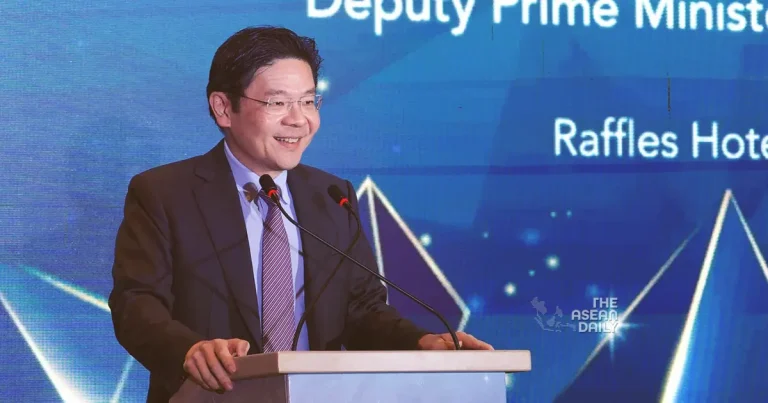11-11-2023 (SINGAPORE) Singapore’s ruling People’s Action Party (PAP) is gearing up for the next general election, which is due by 2025, with a new leader poised to take the helm. Lawrence Wong, the current deputy prime minister, is set to succeed Prime Minister Lee Hsien Loong, who has been in office for 20 years and plans to step down.
During a party convention on Sunday, 71-year-old Lee announced his decision to hand over the reins to the 50-year-old Wong. The leadership transition is expected to be completed by November 21 next year, coinciding with the 70th anniversary of the PAP’s founding. This timing is crucial as it allows Wong to establish a strong foundation and rally support for the upcoming election, which must be held by November 2025.
The performance of the new administration in the election will be closely scrutinized. Meredith Weiss, a professor of political science at the State University of New York in Albany, highlighted the importance of a convincing win, stating that failure to outperform the previous administration could compromise the legitimacy of the new leadership. The PAP has been the dominant political force in Singapore since the country gained independence in 1965, with three prime ministers serving long tenures. The absence of Lee at the helm in the next election presents a challenge for Wong, especially considering recent controversies involving PAP members that have tarnished the party’s reputation.
In July, it was revealed that two party members engaged in an extramarital affair, including one who was married. Additionally, Singapore’s Transport Minister S. Iswaran was arrested by the city-state’s anti-corruption agency, although details of the ongoing investigation have not been disclosed.
Eugene Tan, an associate professor of law at Singapore Management University, emphasized the need to rebuild trust and confidence among Singaporeans in Wong’s team and the PAP. He emphasized the importance of upholding the high standards of integrity, probity, and competence that were associated with the party during the era of Lee Kuan Yew, Singapore’s founding prime minister.
The timing of the next election is also a significant factor to consider. Singapore has a tendency to hold snap elections before the completion of the five-year parliamentary term. Tan suggested that a general election at the end of 2024 might be too soon for Wong to establish himself as the prospective prime minister. However, he added that the ruling party might seize a window of opportunity for a snap election if favorable conditions arise.
Opposition parties, historically with limited representation in Singapore’s parliament, may see this as a rare chance to strengthen their position ahead of the next election. Some opposition groups have taken steps to consolidate their efforts, forming a coalition called the People’s Alliance, which includes the Peoples Voice, the Reform Party, the People’s Power Party, and the Democratic Progressive Party.
The coalition expressed its dissatisfaction with the ruling PAP, citing issues such as the high cost of living, unaffordable property prices, and job insecurity. As the election draws nearer, the PAP highlighted certain party members during the convention, suggesting that they may be part of the party’s candidate slate for the upcoming election.
Wong faces the challenge of maintaining party unity and focus among both new and veteran members to secure a convincing victory. Observers note that a larger win would grant Lee’s successor greater moral authority in leading the next government, even as the PAP undergoes significant changes.
Chong Ja Ian, an associate professor in Political Science at the National University of Singapore, believes that the PAP’s transition does not directly impact the chances of the opposition. The PAP still holds significant institutional advantages. However, he acknowledges that the overall vote share for the PAP has been declining over time, even before the leadership transition.
In the 2020 election, the PAP won 61.2% of the votes, a decrease from the 69.9% it secured in the 2015 election. Nonetheless, the PAP’s unique group representation system allowed it to claim 83 out of the 93 seats contested.
Lee has expressed his willingness to support the new prime minister after the handover. Previous prime ministers, such as Goh Chok Tong and Lee Kuan Yew, continued to serve in senior advisory roles after stepping down. Chong suggests that Wong’s confident leadership may prompt him to request a reduced role for Lee, allowing the new administration to take center stage.




